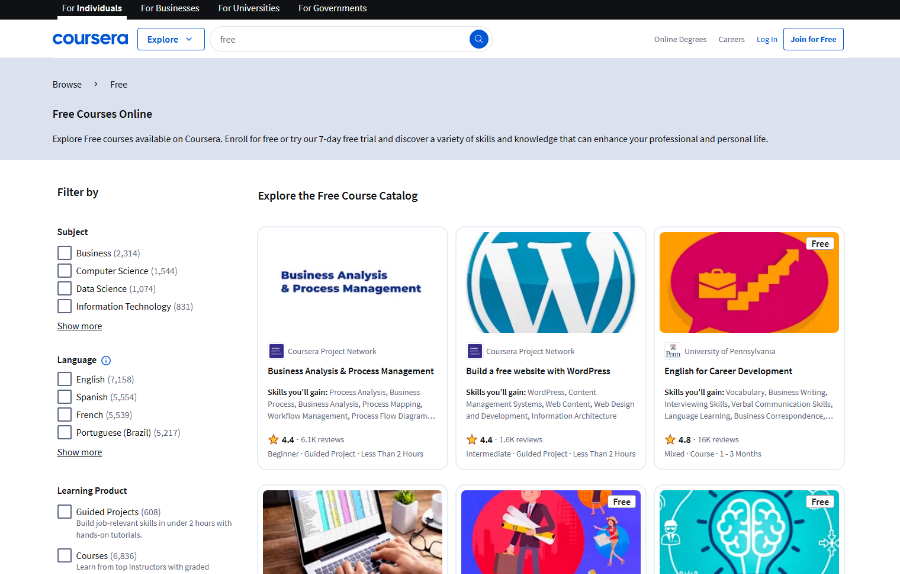
Guess what?! College isn’t the only path to success. Contrary to what you've probably learned most of your life, a trade school can often be a faster and cheaper way to jump start a great paying career, especially for someone homeschooled.
If you’re the type who likes working with your hands, tackling problems, or building things from the ground up, getting a trade school certificate or diploma might be the way to go.
If the trade school path sounds interesting to you,, great! We’re about to dive into what trade and vocational careers are all about and how you can get started while you’re still in high school.
What are Trade and Vocational Careers?
Trade Careers
The "trades" refer to skilled manual work that requires specialized training and expertise. This includes jobs like:
- Electricians
- Plumbers
- Carpenters
- Welders
- HVAC Technicians
- Mechanics

Vocational Careers
Vocations, on the other hand, cover a broader range of skilled professions that often involve specific training or certifications, such as:
- Dental Hygienists
- Medical Assistants
- Culinary Arts
- Cosmetologists
- Construction Managers

Both trade and vocational careers offer plenty of job security, really good pay, and can be attainable with a lot less debt on your shoulders, if any.
Many trades and vocational careers have relatively short training periods. Shorter training means certified and ready for that career faster! With apprenticeships and trade school programs, it's even possible to start earning while you learn. A win-win for everyone!
Why Choose a Trade or Vocation School over a 4-Year College?
Job Security
Trades and vocational careers are in high demand across the country all the time. This is especially true in areas with booming construction or infrastructure projects. Many trades offer long-term job stability since people will always need electricians, plumbers, and mechanics, regardless of economic conditions or even the creation of AI.
While those 4-year college kids are losing their office jobs to AI, AI still has a long way to go before it replaces most of the trade and vocational careers.
Great Pay Potential
Most of the skilled trades out there offer salaries that are on par or higher than jobs that require a four-year college degree. Couple that with very little investment compared to a 4-year college degree and you come out on top with a trade or vocational career.
For example, the average starting salary for someone in a trade or vocational career is $45,000 - $55,000. The average starting salary for someone with a 4-year college degree job is $50,000 - $60,000. This is a difference of $800/mo. Take into account the average student debt payment is $475/mo, that is really a difference of $325 per month. But then you have to factor in time in school. Many trade and vocational professions require a 1-3 year program, which often pays while you are in school. By the time those who went off to a 4-year college graduate, you'll have been working for at least a year in your field, which means you are already earning more, making up that $325 per month difference.
Hands-On Work
If you’re someone who loves hands-on work and likes seeing the results of your hard work, a trade school or vocational school is probably for you.
Imagine stepping back at the end of the day, looking at your work and saying, “I built that,” or “I fixed that,” or “Now that’s working because of me.” That’s the kind of satisfaction you can get from a trade or vocational career.
One of the coolest things about the trades is that you’re solving real-world problems. Someone’s furnace stops working in the middle of winter? Boom—you save the day as an HVAC tech. A car breaks down on the highway? You’re the hero who gets it running again. These careers are practical, meaningful and rewarding.
And if you are tired of book learning or don't want to feel like your being homeschooled all over again, the training is super focused and a lot of it is hands-on. This means you can actually enjoy learning and know that what you are learning is contributing directly to the money you will earn.
Growth Opportunity
Trade careers offer tons of room for growth. You might start as an apprentice or entry-level worker, but with time and experience, you can work your way up to management roles, specialized positions, or even owning your own business someday.
Think about it: You could go from learning the trade to running the show. For homeschoolers who are used to independence and self-motivation, this kind of career path can be an incredible fit.
Take plumbing, for example. You start off learning the basics of pipe installation and repair, then specialize in eco-friendly systems or large-scale commercial projects. Or, maybe you have your eye set on construction. You start off swinging a hammer and before you know it, you're the project foreman overseeing an entire construction project from start to finish.
And if you have always wanted to run your own business, this is the way to go!
Getting Started in Homeschool
There is one secret weapon that you have as a homeschooler that public schooled kids do not have...
Time!
You may not know this, but local community colleges and trade schools offer dual-enrollment. What is dual-enrollment you ask?
Basically, dual enrollment is a two-for-one deal. You’re still a homeschooler working toward your high school diploma, but you’re also taking courses at a trade school or community college. These courses count for both high school and college credit!
By the time you graduate high school, you could already be certified in something like welding, HVAC (heating, ventilation, and air conditioning). Let me see public schooled kids do that!
On top of that, you can go ahead and get connected in the industry you want to work in. Find a company that does what you want to do and tell them you are already in a program and you want to get a leg up. Ask them if they would be willing to let you apprentice or learn from someone already in the field. In return, you do odd-jobs and administrative tasks while being taught real-world applications.
More on Internships and Apprenticeships
If you do decide to do an apprenticeship or internship, they are typically short-term, unless the company really likes you and is interested in hiring you.
Either way, the knowledge, confidence, and real-world work experience will set you above the rest. As I mentioned before, as a homeschooler, you’ve got the flexibility to jump into these opportunities now, and I wouldn't wait!
The types of opportunities available vary depending on the trade you’re interested in, but they are out there. It just takes a little research, sending some emails, and making some phone calls.

Volunteer
Volunteering is another awesome way to get a foot in the door with hands-on experience. It won't come with a paycheck but it can open doors to future opportunities and help you figure out which trade is the best fit for you.
Volunteering also shows potential mentors and employers that you’re serious about learning and willing to put in the time and effort.
There are plenty of ways to volunteer in the trades. Organizations like Habitat for Humanity are a great starting point.
You could also reach out to local businesses and tradespeople to see if they could use an extra set of hands. For example, a small engine repair shop might let you help out with basic tasks, or a carpenter might appreciate help cleaning up a job site or organizing tools. Even small contributions can teach you valuable lessons and give you a glimpse into what the work is really like.
Online Courses and Certifications
Online courses and certificates are a really great way to start building skills in the trades right from home.
Some are offered by formal community colleges and trade schools, other online learning sites like Udemy, Coursera, and Skillshare, offer affordable courses that teach you the on the go.
Whether you’re looking to learn the basics or dive deeper into a specific trade, online programs can give you the knowledge you need to get started and many are at your own pace.
Again, this is a great way to build the resume when you are ready to get hired. Imagine showing up in a room with other applicants and you've got courses, volunteer time, and an apprenticeship under your belt at 18 or 19.
For some other online options, check out OSHA (Occupational Safety and Health Administration), and programs like Penn Foster or Ashworth College offer comprehensive trade courses for subjects like HVAC, plumbing, or electrical work.

Wrapping Up
Pursuing a career in the trades is an awesome choice for those in homeschool.
If you love working with your hands and want a job that’s both fulfilling and stable, you don’t have to wait until after high school to get started. The sooner you dive in, the sooner you'll be in a career, buying a home, taking vacations on your own, and being 100% independent.
Take some time to explore your options and don’t be shy about reaching out to local businesses, trade unions, or career centers. They often have great leads on internships, apprenticeships, and other opportunities to get your foot in the door.
Every skill you learn now will set you up for success in a career that not only pays well but can also be incredibly satisfying.
And remember, the trades aren’t a “backup plan.” They’re a legit career path that can lead to a lifetime of reward and success.

There's no need to struggle with homeschool. Join BridgePath to get the answers and support you and your homeschooler need to succeed.
© BridgePath Prep. All Rights Reserved \\ CONTACT US
